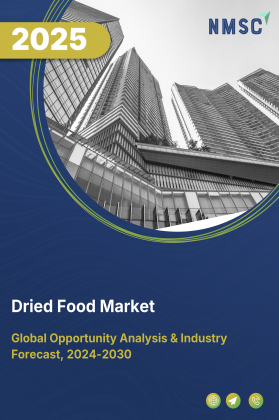
Collagen Market by Source (Animal Collagen and Vegan Collagen), by Product Type (Gelatin, Hydrolyzed Collagen, Native Collagen, and Synthetic Collagen), by Type (Type 1, Type 2, Type 3, and Others), by Form (Powder, Liquid, and Others), by Function (Texture, Stabilizer, Emulsifier, Finding and Others), by Product Category (Genetically Modified Foods (GMO) and NON-GMO), and Others – Global Opportunity Analysis and Industry Forecast, 2024– 2030
Market Definition
The global Collagen Market size was valued at USD 6.49 billion in 2023 and is predicted to reach USD 11.01 billion by 2030 with a CAGR of 7.9% from 2024-2030. Collagen, a structural protein found abundantly in the human body and in various animal tissues, has gained significant attention in recent years for its potential health and wellness benefits.
Collagen supplements, typically derived from animal sources or produced through bioengineering techniques, are widely consumed to support joint health, promote muscle recovery, and improve skin elasticity from within.
Given its importance in maintaining tissue integrity and function, collagen is widely studied and utilized in medical, cosmetic, and dietary applications, ranging from wound dressings and surgical implants to skincare products.
Market Dynamics and Trends
The global collagen market is experiencing growth driven by its widespread use in medical products across various healthcare applications. Collagen's unique properties make it suitable for a range of medical products, including wound dressings, surgical sutures, and dermal fillers.
In wound care, collagen dressings facilitate tissue regeneration and promote fast healing. Collagen-based surgical sutures reduce tissue trauma during procedures, while dermal fillers smooth wrinkles and enhance skin texture in cosmetic treatments. This increased utilization of collagen in medical practices reflects its importance in modern healthcare practices and contributes to the expansion of the global collagen market.
Moreover, collagen is significantly valued in skincare routine for its ability to enhance skin elasticity, firmness, and hydration. As a vital structural protein in the skin, collagen plays a crucial role in maintaining its integrity and youthful appearance. Skincare products enriched with collagen claim to reduce wrinkles, fine lines, and sagging skin by replenishing lost collagen levels and stimulating collagen production.
With the global increase in demand for collagen-infused skincare products, companies are introducing new launches to meet their consumer’s expectations. For instance, in January 2024, Innisfree launched the Collagen Green Tea Ceramide Bounce Cream, aimed at improving skin elasticity and strengthening the skin barrier. This product contains a low-molecular collagen-like ingredient that strengthens skin elasticity, highlighting the ongoing innovation and expansion in the collagen market.
However, the potential health issues associated with the use of collagen among some individuals is restraining the growth of the collagen market. This includes allergic reactions, such as skin rashes and swelling, along with digestive discomfort and potential heart problems.
These concerns emphasize the importance of careful consideration and consultation with healthcare professionals before incorporating collagen products into one's routine, which impacts consumer confidence and market growth.
On the contrary, the development of an advanced collagen platform crafted through fermentation-based methods, eliminating the need for animal or human-derived materials is expected to create future opportunities in the collagen market.
This advanced technology is expected to bring an extremely soluble and highly pure form of collagen to the medical, pharmaceutical, and tissue engineering fields. This breakthrough promises to be a game-changer, offering a safe, sustainable, and commercially scalable solution that addresses the evolving demands of various industries in the future.
Market Segmentations and Scope of the Study
The collagen market is segmented on the basis of source, product type, type, form, function, product category, application, and region. On the basis of source, the market is categorized into animal collagen and vegan collagen. The animal collagen is further divided into bovine, porcine, poultry, marine, and others.
On the basis of product type, the market is segmented into gelatin, hydrolyzed collagen, native collagen, and synthetic collagen. On the basis of type, the market is classified into type 1, type 2, type 3, and others. On the basis of form, the market is divided into powder, liquid, and others. On the basis of function, the market is distributed into texture, stabilizer, emulsifier, finding, and others.
On the basis of product category, the market is segmented into genetically modified foods (GMO) and non-GMO. On the basis of application, the market is categorized into nutritional, food & beverages, pharmaceuticals, cosmetics & personal care, medical devices, and textiles. The regional breakdown includes regions such as North America, Europe, Asia-Pacific, and the Rest of the World (RoW).
Geographical Analysis
Asia-Pacific holds the dominant share of the collagen market and is expected to continue its dominance during the forecast period. This is attributed to the region's significant growth in the aging population, notably prominent in countries including Japan, South Korea, and Singapore.
As people age, their natural collagen production declines, resulting in increased interest in collagen supplements and skincare products to address age-related concerns such as reduced skin elasticity and wrinkles.
This demographic trend fuels a growing demand for collagen-based solutions targeting various health and wellness aspects, including skin elasticity and bone health. According to the World Economic Forum, Japan has an estimated 36.23 million people aged over 65 in 2023.
Additionally, it is projected that approximately 40 percent of the populations of Hong Kong, South Korea, and Japan will be aged 65 and older by the year 2050, highlighting the substantial market share for collagen products in the region.
Moreover, the expansion of the collagen market in the Asia Pacific region is driven by its extensive use across the healthcare sector in countries such as India, Australia, and Japan, among others. With a rising number of joint-related cases in the Asia Pacific region, there is a corresponding increase in the demand for collagen as a treatment option.
According to the data published by the National Center for Biotechnology Information in 2022, Australia reports approximately 3,900 cases of periprosthetic joint infection (PJI) annually. This highlights the significant demand for collagen-based solutions in addressing healthcare needs, contributing to the market's expansion in the Asia Pacific region.
On the other hand, North America is experiencing steady growth in the collagen market, propelled by its increased utilization within the region's food and beverage industry. Collagen is utilized as a protein supplement in various food and beverage products, enriching their nutritional profile and promoting joint and skin health. Its incorporation into items such as protein bars, drinks, and functional foods targeting beauty and wellness is becoming increasingly popular among individuals in this region.
This surge aligns closely with the rapid expansion of North America's food and beverage industry. According to Gitnux, a Global Commerce Media Company, the projected annual growth rate for the US food and beverage industry from 2021 to 2026 is 1.4%, further driving the growth of the collagen market in this region.
Also, the growing interest of the population in this region in skincare and beauty products acts as a driving force for the collagen market in North America. Collagen's pivotal role in supporting hair strength, and nail health through tissue repair and regeneration processes enhances overall beauty and wellness.
Consequently, there is an increasing demand for collagen-infused skincare products in North America, prompting companies to actively launch new offerings to meet customer needs. For instance, in November 2023, Designs for Health introduced Whole Beauty Collagen, a powder containing hydrolyzed collagen peptides, along with Lustriva, a blend of stabilized biotin and silica, designed to support hair, skin, and nails. This demonstrates the market's response to consumer preferences for collagen-based skincare solutions in the region.
Competitive Landscape
Various market players operating in the collagen industry include Rousselot S.A.S., GELITA AG, Nippi Collagen NA Inc., Weishardt Group, Gelnex, Amicogen, Inc., Juncà Gelatines SL, PB Leiner, Nitta Gelatin, Inc., Tessenderlo Group nv. These market players continue to adopt various market development strategies including product launches, acquisitions, and others to maintain their dominance in the collagen market.
For instance, in December 2023, GELITA AG, a leading manufacturer of collagen peptides, introduced PeptEndure, a unique protein solution designed to enhance endurance performance through a sustainable, adaptive approach to muscle conditioning.
Moreover, in October 2022, Darling Ingredients completed the acquisition of Gelnex, a Brazilian collagen producer, to enhance its production capacity for grass-fed bovine collagen. This acquisition, announced in October 2022 for approximately USD 1.2 billion, includes five facilities in South America and one in the United States. Gelnex can produce 46,000 metric tons of collagen products annually.
Key Benefits
-
The report provides quantitative analysis and estimations of the collagen market from 2024 to 2030, which assists in identifying the prevailing market opportunities.
-
The study comprises a deep-dive analysis of the current and future collagen market trends to depict prevalent investment pockets in the market.
-
Information related to key drivers, restraints, and opportunities and their impact on the collagen market is provided in the report.
-
A competitive analysis of the players, along with their market share is provided in the report.
-
SWOT analysis and Porter's Five Forces model are elaborated in the study.
-
Value chain analysis in the market study provides a clear picture of the roles of stakeholders
Collagen Market Key Segments
By Source
-
Animal Collagen
-
Bovine
-
Porcine
-
Poultry
-
Marine
-
Others
-
-
Vegan Collagen
By Product Type
-
Gelatin
-
Hydrolyzed Collagen
-
Native Collagen
-
Synthetic Collagen
By Type
-
Type 1
-
Type 2
-
Type 3
-
Others
By Form
-
Powder
-
Liquid
-
Others
By Function
-
Texture
-
Stabilizer
-
Emulsifier
-
Findings
-
Others
By Product Category
-
Genetically Modified Foods (GMO)
-
NON-GMO
By Application
-
Nutritional
-
Food & Beverages
-
Pharmaceuticals
-
Cosmetics & Personal Care
-
Medical Devices
-
Textile
By Region
-
North America
-
The U.S.
-
Canada
-
Mexico
-
-
Europe
-
The UK
-
Germany
-
France
-
Italy
-
Spain
-
Denmark
-
Netherlands
-
Finland
-
Sweden
-
Norway
-
Russia
-
Rest of Europe
-
-
Asia-Pacific
-
China
-
Japan
-
India
-
South Korea
-
Australia
-
Indonesia
-
Singapore
-
Taiwan
-
Thailand
-
Rest of Asia-Pacific
-
-
RoW
-
Latin America
-
Middle East
-
Africa
-
REPORT SCOPE AND SEGMENTATION:
|
Parameters |
Details |
|
Market Size in 2023 |
USD 6.49 Billion |
|
Revenue Forecast in 2030 |
USD 11.01 Billion |
|
Growth Rate |
CAGR of 7.9% from 2024 to 2030 |
|
Analysis Period |
2023–2030 |
|
Base Year Considered |
2023 |
|
Forecast Period |
2024–2030 |
|
Market Size Estimation |
Billion (USD) |
|
Growth Factors |
|
|
Countries Covered |
28 |
|
Companies Profiled |
10 |
|
Market Share |
Available for 10 companies |
|
Customization Scope |
Free customization (equivalent up to 80 working hours of analysts) after purchase. Addition or alteration to country, regional, and segment scope. |
|
Pricing and Purchase Options |
Avail customized purchase options to meet your exact research needs. |
Key Players
-
Rousselot S.A.S.
-
GELITA AG
-
Nippi Collagen NA Inc.
-
Weishardt Group
-
Gelnex
-
Amicogen, Inc.
-
Juncà Gelatines SL
-
PB Leiner
-
Nitta Gelatin, Inc.
-
Tessenderlo Group nv




















 Speak to Our Analyst
Speak to Our Analyst

























